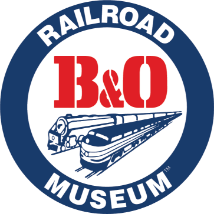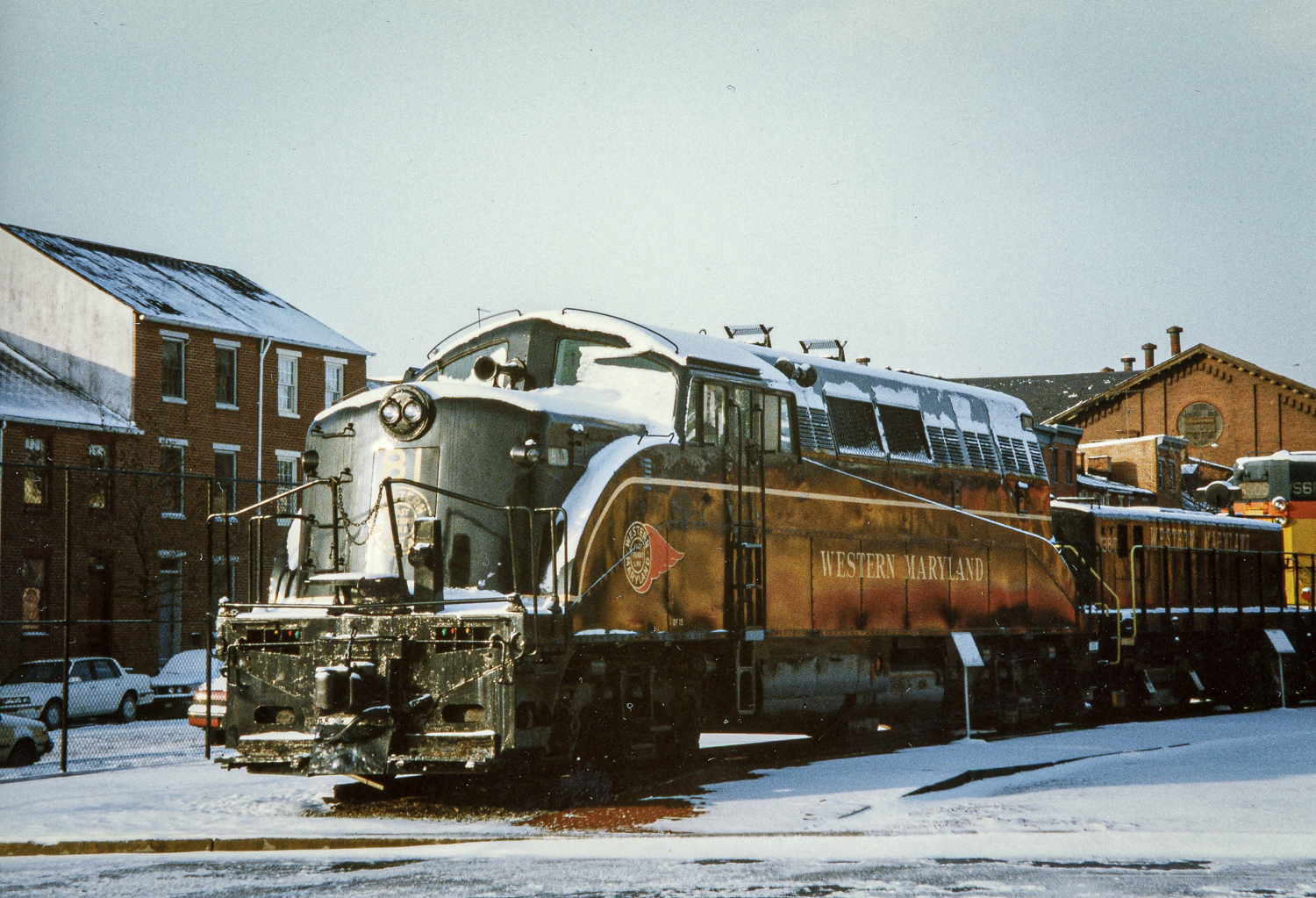Quick Facts
| Name | WM No. 81 |
|---|---|
| Manufacture Date | 1948 |
| Railroad Of Record | Western Maryland Railway; Baltimore & Ohio Railroad |
| Manufacturer | American Locomotive Works (ALCO) |
| Rolling Stock Type | Diesel-Electric Switcher |
Description
Following the release of the CNJ No. 1000 – the world’s first commercially available/successful diesel-electric locomotive – in 1925, American Locomotive Works (ALCO) established itself as the leading producer of diesel-electric engines. In the late 1930s, General Motors Electro-Motive Division (GM-EMD) became a powerful competitor. While ALCO built diesel locomotives for mainline use, GM-EMD locomotives were designed for local passenger routes, branch lines, and other “in between” jobs.
First put into production in 1948, the GM-EMD model BL-2 was designed for local freight services, passenger services, and mixed freight manifest trains. The diesel-electric switcher’s unique sculpted body made it possible for engineers to see the end of a train when moving in reverse, and its rear platforms provided a safe perch for crews to use during switch runs. Despite these advantages, the BL-2 did not live up to GM-EMD standards: they were expensive to produce, difficult to maintain, and awkward to operate. Only 58 units were made before production ended in 1949. BL-2 was swiftly succeeded by the wildly popular GP-7 switcher.
The Western Maryland Railway acquired two BL-2 locomotives, the WM No. 81 and the WM No. 82, in 1948. They were the only BL-2 type locomotives ever purchased by the WM. The switchers were used to pull freight trains along the WM mainline until 1968, when they were both assigned to the Hagerstown hump yard. There, the No. 81 and No. 82 were coupled together on the same train and used to power a “slug.” Comprised of traction motors and lacking a prime mover, slugs receive their power from an attached “mother” locomotive. With the help of slugs, locomotives are able to pull heavier trains at lower speeds.
In 1973, the WM merged with the B&O and the C&O Railroads to form the Chessie System. Three years later, WM’s operation merged with the B&O’s, and the No. 81 was renumbered as the No. 7181. Due to a locomotive numbering conflict with MDOT, the switcher received yet another number – No. 7171 – in 1981. The No. 7171 continued to work in the Hagerstown yard until 1982, when it was retired, repainted, and renumbered to match its original Western Maryland appearance. The following year, CSX donated the switcher to the B&O Railroad Museum.
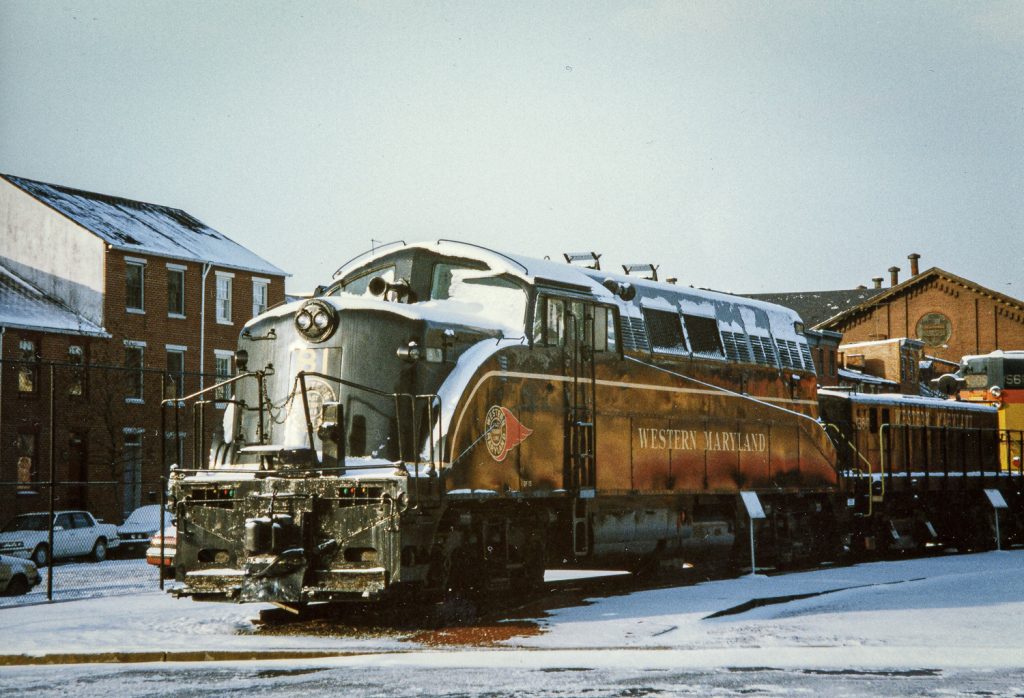
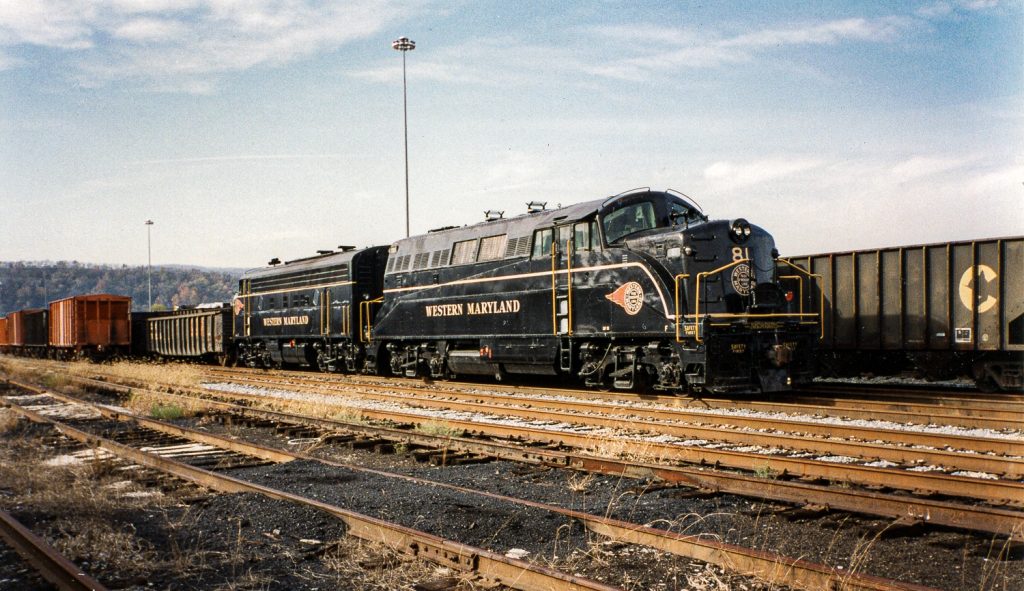
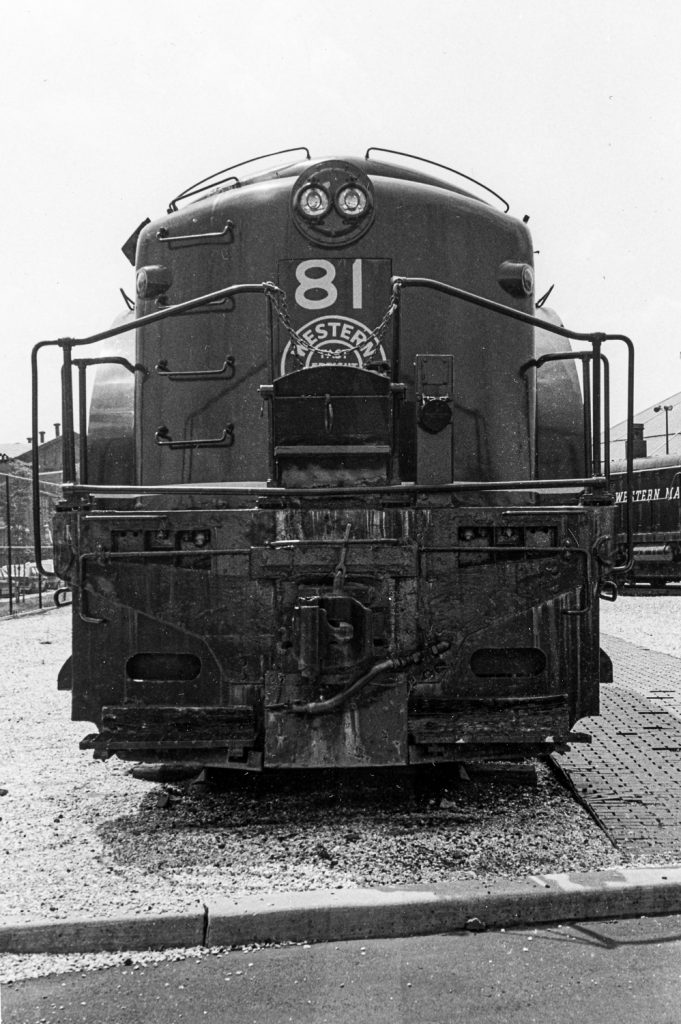
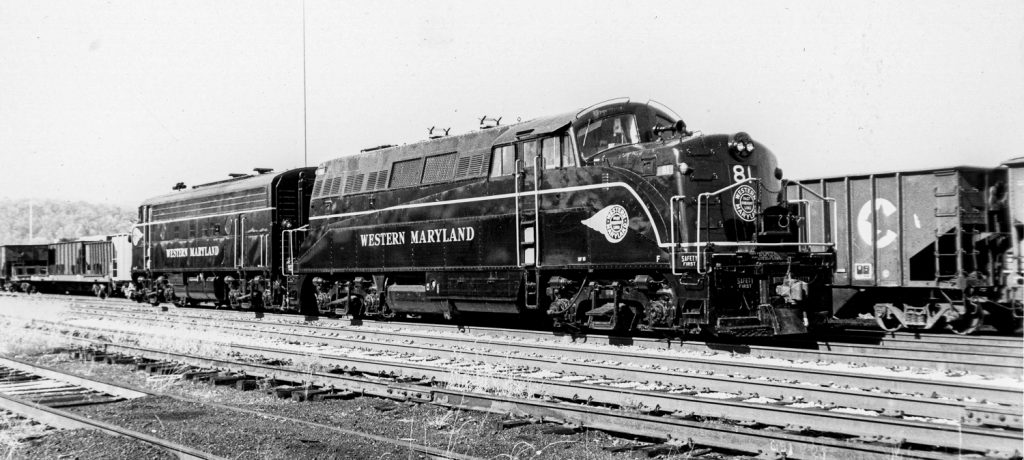
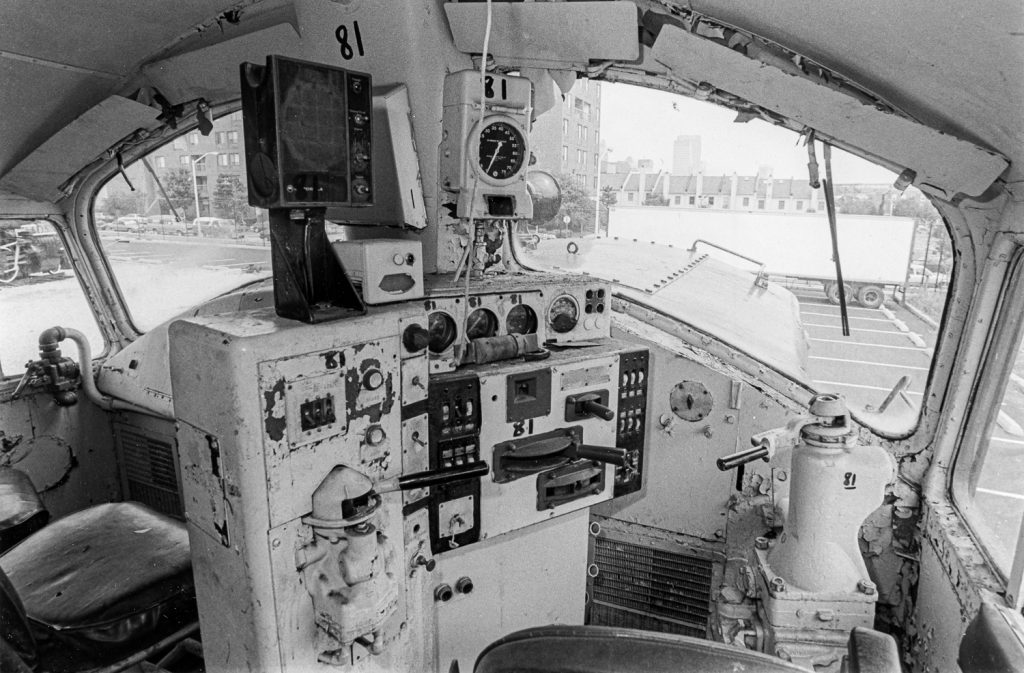
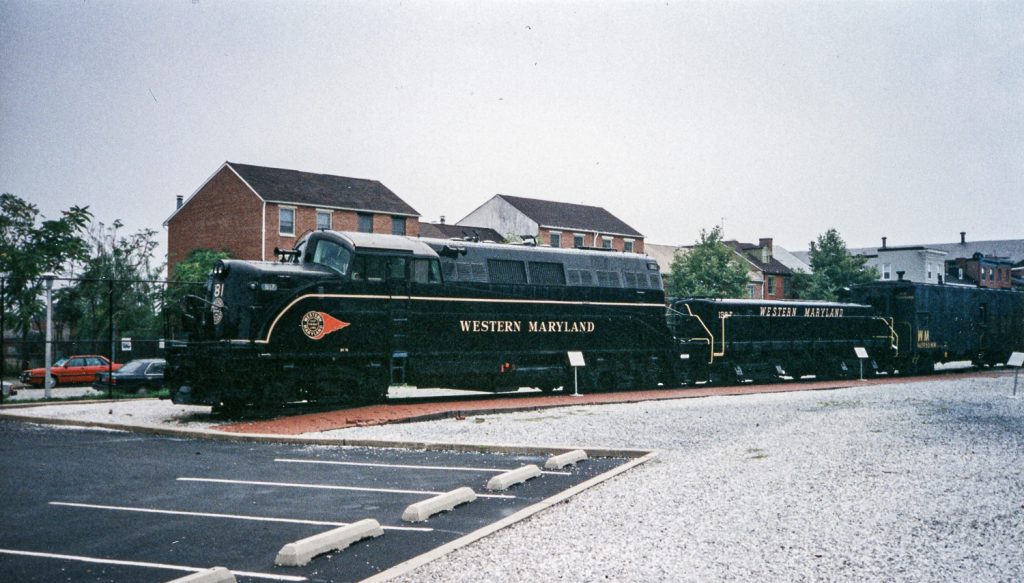
Can't Get Enough?
There’s even more to explore. Check out this and other unique pieces from our collection.
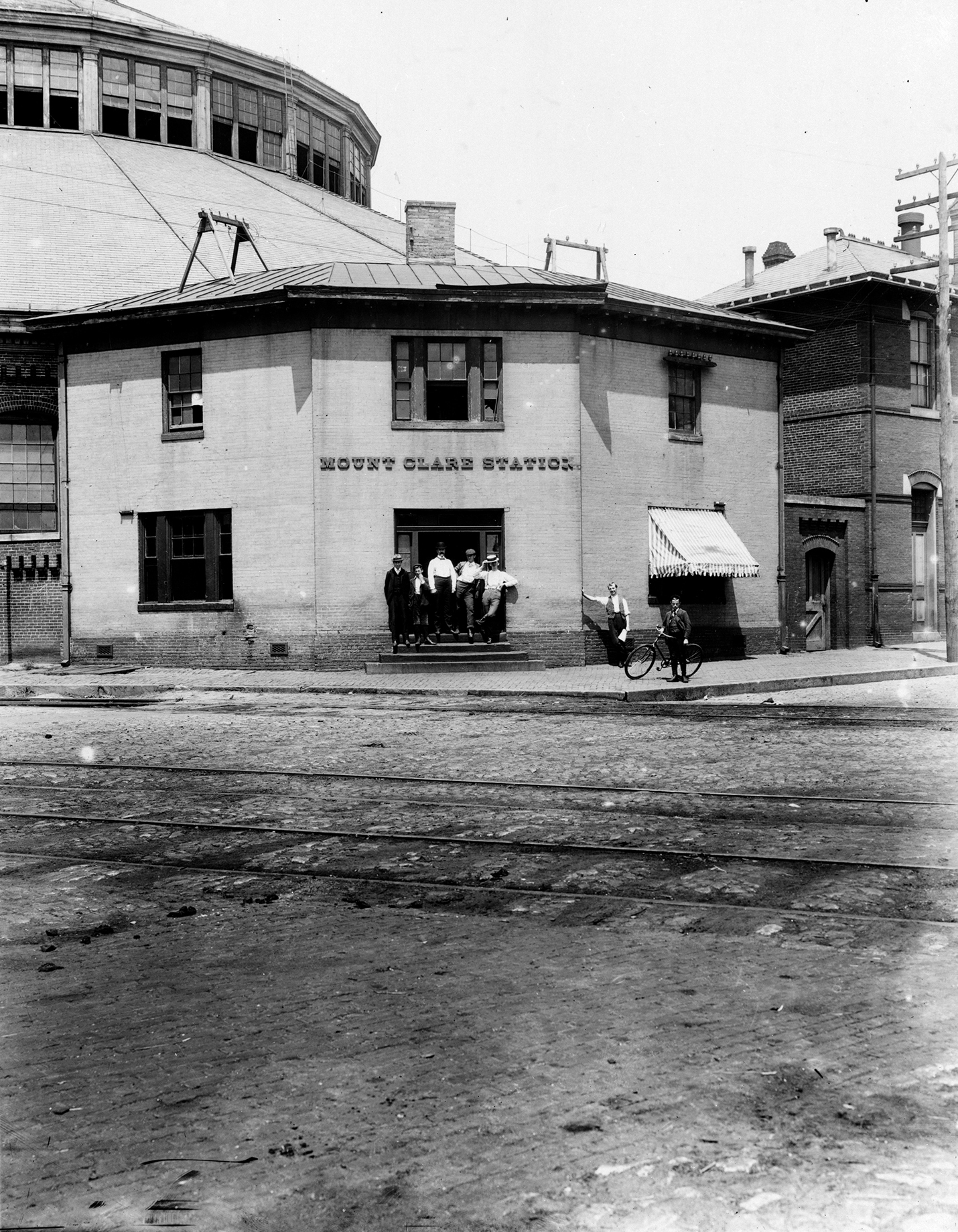
Did You Know?
The first passenger train ticket in the United States was sold on our historic site in 1830.
